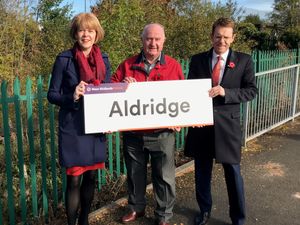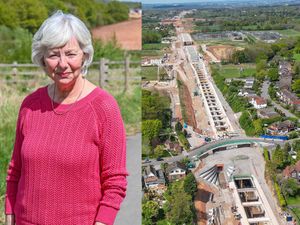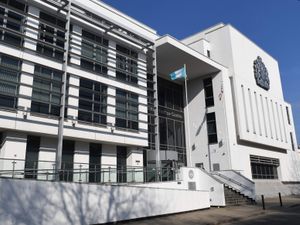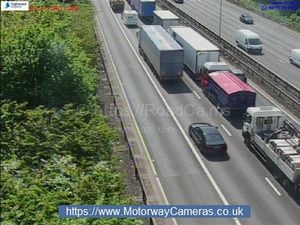Transport minister says railways are ‘stuck in past’ ahead of strike action
Railways have struggled to keep up with modern living and are in urgent need of reform, transport minister Wendy Morton claimed, as rail workers are set to strike at the end of June over pay and conditions.

Ms Morton, who represents the Aldridge-Brownhills constituency, said the Government cannot ignore “outdated working practices” in the rail industry.
The MP visited Birmingham this week at the Department of Transport’s regional offices on a tour of the newly built Perry Barr Station; and spoke at the World Congress for Rail Research, at the University of Birmingham.
Ms Morton said: “I am disappointed that the industry is going for strike action, because I do want to encourage people onto our railways.
“Some of the working practices are stuck in the past, dare I say. One of them is around voluntary Sunday working, which means operators are short-staffed, particularly during good weather or when there are major football games on.
“They’re popular on a weekend, and yet travel can often be harder and prone more disruption […] I want a railway that, at the heart of it, is travellers and passengers. Strikes should be the last resort, not the first, quite frankly.”
Reports this week suggest the Rail, Maritime and Transport (RMT)’s general secretary, Mick Lynch, said the union had been treated “appallingly”, but remained open to meaningful negotiations with the industry and ministers.
Rail workers belonging to the RMT union will walk out on June 21, 23 and 25. The strike action is expected to shut down much of the national rail system for a week.
The RMT say many of its members had had wages frozen during the pandemic and have not yet been offered a pay rise. Companies like Network Rail, who look after the infrastructure of Britain’s railways, have been told to find up to £2 billion in annual savings.
The disruptions will cover some of the busiest days of the summer since pandemic rules on travel were relaxed, including the Glastonbury festival, the UK athletics championships in Manchester, two parliamentary by-elections in Wakefield and Tiverton & Honiton, and a concert in London’s Hyde Park by the Rolling Stones.
The planned industrial action – after a successful ballot of 40,000 members across Network Rail and 13 train operating companies last month – will commence on Tuesday, June 21, and run on alternating days until the Saturday.
The walkout will also hit the rail industry’s largest outdoor exhibition, Rail Live, which is planned for 22-23 June in Warwickshire.
Rail bosses said they would keep as much as possible of the timetable running. A walkout by Network Rail signallers will affect trains across England, Scotland and Wales.
A Network Rail spokesperson said: “We want to continue to meet with the trades unions to discuss their pay concerns and will do all we can to avoid strike action which has the potential to cause misery to millions of Midlands passengers.
“There is still time until the strike is planned, and we hope to find a solution to avoid the inevitable damage that strike action would cause.”





